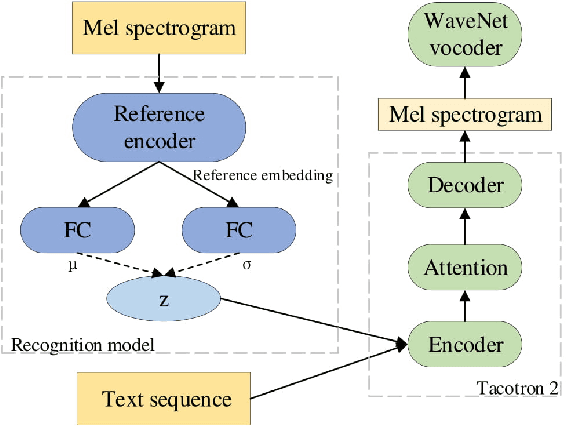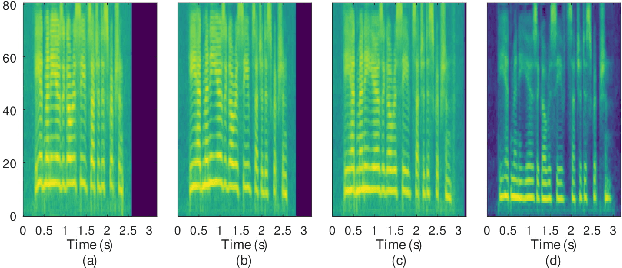Learning latent representations for style control and transfer in end-to-end speech synthesis
Paper and Code
Dec 11, 2018



In this paper, we introduce the Variational Autoencoder (VAE) to an end-to-end speech synthesis model, to learn the latent representation of speaking styles in an unsupervised manner. The style representation learned through VAE shows good properties such as disentangling, scaling, and combination, which makes it easy for style control. Style transfer can be achieved in this framework by first inferring style representation through the recognition network of VAE, then feeding it into TTS network to guide the style in synthesizing speech. To avoid Kullback-Leibler (KL) divergence collapse in training, several techniques are adopted. Finally, the proposed model shows good performance of style control and outperforms Global Style Token (GST) model in ABX preference tests on style transfer.
 Add to Chrome
Add to Chrome Add to Firefox
Add to Firefox Add to Edge
Add to Edge